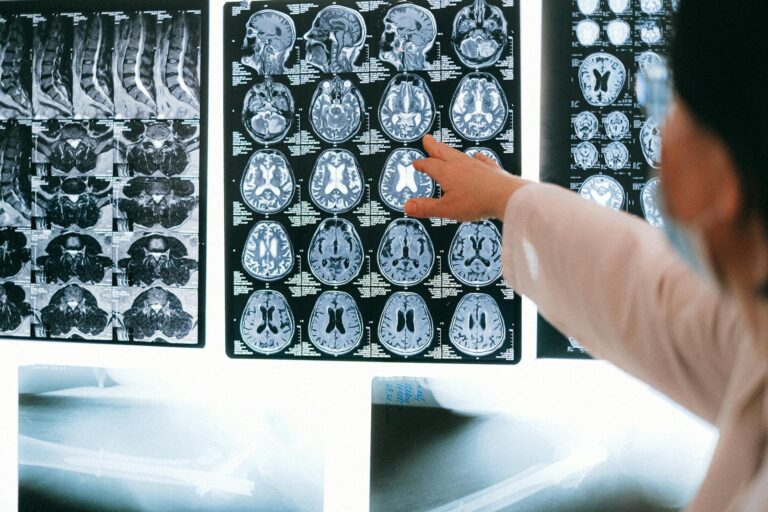Lung cancer is a type of cancer that begins in the lungs, the organs responsible for the exchange of oxygen and carbon dioxide in our body. It is one of the most common cancers in the world, with an estimated 2.09 million new cases each year according to the World Health Organization. While lung cancer can spread to various parts of the body, one of the most concerning and dangerous places it can spread to is the brain.
The journey of lung cancer to the brain begins when malignant (cancerous) cells form in the lungs. These cells can then travel through the bloodstream or lymphatic system and reach other parts of the body, including the brain. This process is known as metastasis, and it is how cancer spreads from its original site to other areas of the body.
When lung cancer spreads to the brain, it is referred to as brain metastases or secondary brain tumors. This means that the cancer originated in the lungs and then spread to the brain. It is important to note that this is different from primary brain tumors, which start in the brain itself.
The spread of lung cancer to the brain can occur at any stage of the disease. However, it is more likely to occur in advanced stages of lung cancer when the cancer has already spread to other parts of the body, such as the liver, bones, or adrenal glands. This is because cancer cells are constantly moving and circulating in the body, looking for new places to grow. Unfortunately, the brain is a common destination due to its rich blood supply and its role as the control center of our body.
So how does lung cancer affect the brain? When cancer spreads to the brain, it can cause a wide range of symptoms depending on the location and size of the tumor. Some common symptoms may include headaches, weakness or numbness on one side of the body, difficulty with movement, changes in speech or vision, and confusion or memory problems. These symptoms may also be accompanied by other lung cancer related symptoms such as coughing, shortness of breath, and fatigue.
In some cases, the spread of lung cancer to the brain may be asymptomatic, meaning that there are no noticeable symptoms. This can make it challenging to detect brain metastases, especially in patients who have already been diagnosed with lung cancer. That is why regular check-ups and imaging tests are crucial for monitoring the spread of lung cancer and catching any brain metastases early on.
The treatment options for lung cancer that has spread to the brain depend on various factors, including the size and number of tumors, the type of lung cancer, and the overall health of the patient. In some cases, surgery may be an option to remove the tumors from the brain. However, this is often not possible due to the location of the tumors or their size. Radiation therapy is another common treatment option that uses high-energy rays to kill cancer cells in the brain. This can be done through external beam radiation or by using small radioactive pellets called brachytherapy.
Along with these treatments, chemotherapy or targeted therapy may also be used to help control the spread of lung cancer to the brain. These treatments work by targeting and killing cancer cells in the body, including those in the brain. Depending on the individual case, a combination of these treatments may be used for the best possible outcome.
In addition to medical treatment, supportive care is also essential for patients with lung cancer that has spread to the brain. This may include medications for managing symptoms such as headaches or nausea, as well as emotional support and counseling for both the patient and their loved ones.
It is important to note that while lung cancer spreading to the brain can be a serious and life-threatening situation, it is not a death sentence. With early detection and proper treatment, many patients are able to manage their symptoms and continue living a fulfilling life.
In conclusion, lung cancer that has spread to the brain is a complex and challenging aspect of this disease. Understanding the process of metastasis and being aware of the potential symptoms is crucial for early detection and treatment. With ongoing advancements in medical technology and treatment options, there is hope for patients with lung cancer and brain metastases. It is important to stay informed, stay positive, and seek support from healthcare professionals and loved ones during this difficult time.





